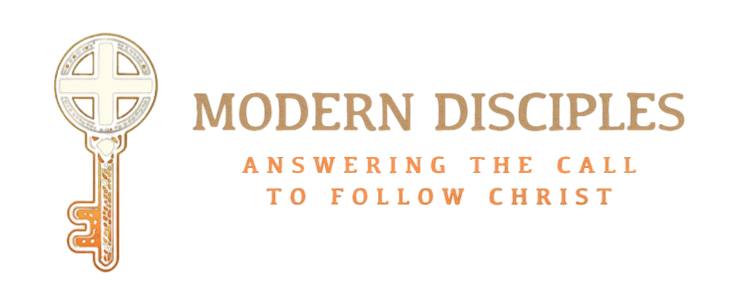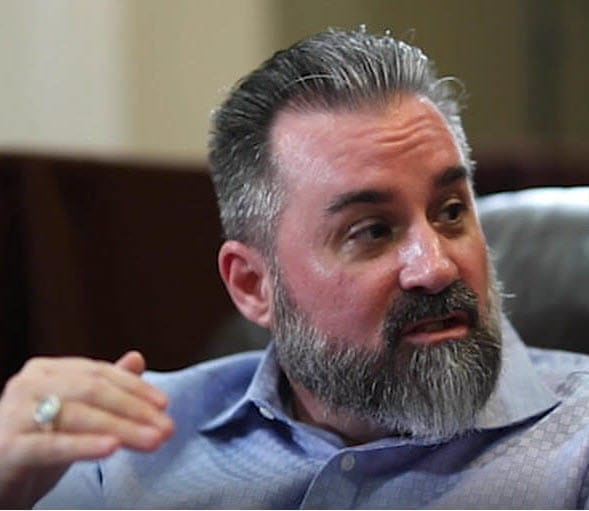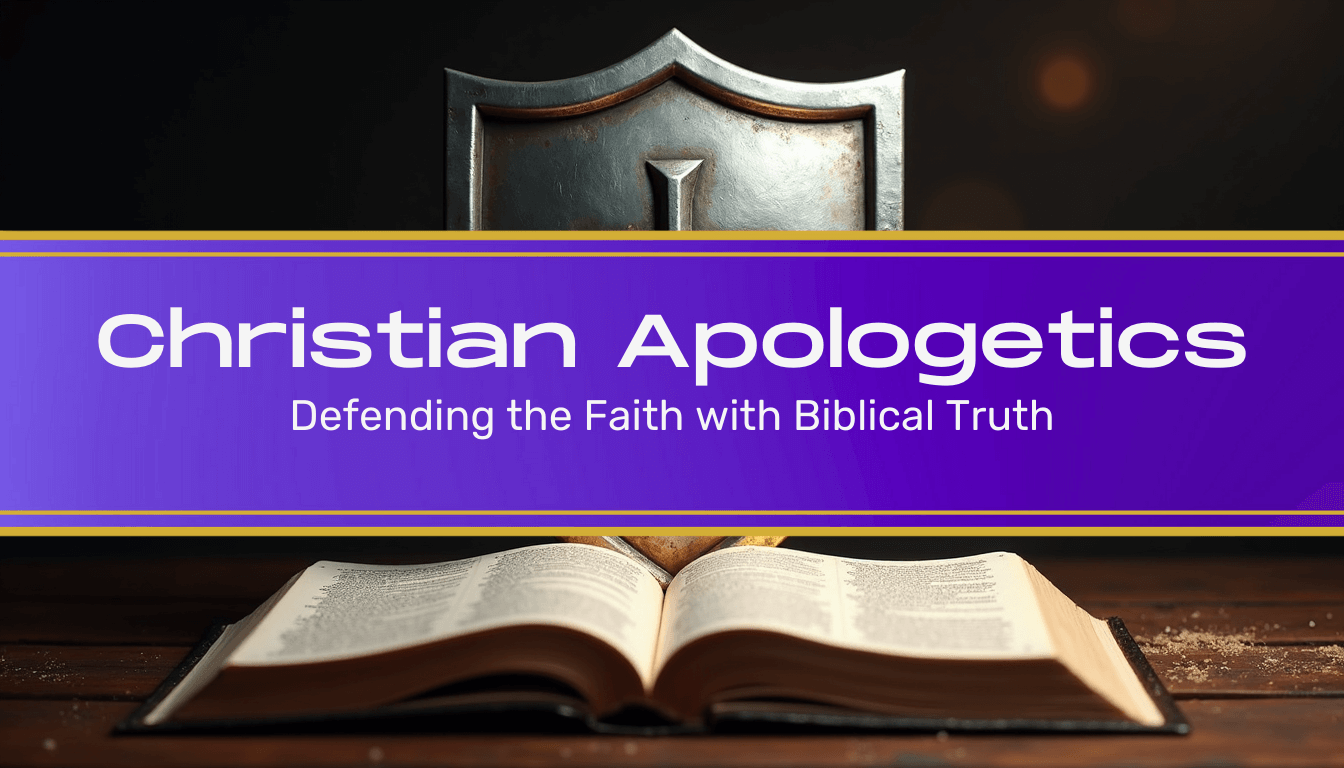
Arminianism vs. Calvinism
Understanding the Debate on Free Will and Predestination
Here's what drives most Christians crazy: they want a simple answer to whether humans choose God or God chooses humans, but Scripture seems to teach both. So they pick a side, build a fortress around their position, and spend their energy defending it instead of understanding it. Micro-promise: Arminianism vs Calvinism isn't about choosing the right team—it's about understanding how God's sovereignty and human responsibility work together in ways that humble human logic.
I used to think this debate was theological nitpicking until I realized it affects everything: how you pray, how you evangelize, how you handle doubt, and how you understand your relationship with God. The stakes aren't academic—they're deeply personal.
The tension between divine sovereignty and human responsibility isn't a problem to be solved—it's a mystery to be embraced. Both truths appear throughout Scripture because both are true, even when we can't fully explain how they work together.
This isn't about picking the winning theological team. This is about understanding what Scripture actually teaches and living faithfully within that tension.
Sharp Edge: If you think you've solved the sovereignty-responsibility tension, you've probably reduced God to something smaller than He actually is. The goal isn't to eliminate the mystery but to worship the God who's bigger than your understanding.
What's Really at Stake
How Salvation Works
Does God save people who choose Him, or does God choose only some to be save? This isn't just theological speculation—it affects how you understand your own salvation and how you share the Gospel with others.
Who Gets the Glory
If humans contribute, like through choice, then humans deserve some credit. If God accomplishes everything through Christ's death on the cross, then God gets all the glory. This matters more than you might think.
How Prayer Functions
If God has already determined everything, why pray? If humans have ultimate free will, can prayer actually change God's mind? Your view of sovereignty affects how and why you pray.
What Assurance Means
Can you lose your salvation? Does your security depend on your continued faith or God's unchanging choice? This debate directly impacts your confidence.
Understanding Arminianism
Arminianism emerged in the early 17th century through Dutch theologian Jacobus Arminius, who challenged certain aspects of Calvinist teaching while maintaining core Protestant principles.
The Five Points of Arminianism
1. Conditional Election
God chooses to save a few based on His foreknowledge of their faith. Election is conditional on human response to the Gospel.
Biblical support: 1 Peter 1:2 speaks of being "chosen according to the foreknowledge of God."
2. Universal Atonement
Christ died for all people, making salvation possible for everyone. However, it becomes effective only for those who believe.
Biblical support: 1 John 2:2 says Christ "is the propitiation for our sins, and not for ours only but also for the sins of the whole world."
3. Total Depravity (with Prevenient Grace)
Humans are corrupted by sin but enabled by God's prevenient grace to respond to the Gospel. This grace is given to all, making genuine choice possible.
Biblical support: John 1:9 speaks of the light that "enlightens everyone."
4. Resistible Grace
God's grace can be resisted. Folks can reject God's call and choose to remain in sin.
Biblical support: Acts 7:51 where Stephen accuses the religious leaders: "You always resist the Holy Spirit."
5. Conditional Perseverance
Believers can fall away from faith and lose their salvation if they abandon their trust in Christ.
Biblical support: Hebrews 6:4-6 warns about those who "fall away" after experiencing God's grace.
Arminian Strengths
Arminianism emphasizes human responsibility and the genuine nature of choice. It motivates evangelism by insisting that everyone can be saved and encourages holy living by maintaining that faith must be maintained.
Arminian Challenges
If being saved depends partly on human choice, then humans deserve some credit for their salvation. This can lead to spiritual pride or, conversely, to doubt about whether one's faith is sufficient.
Understanding Calvinism
Calvinism, also known as Reformed theology, follows the teachings of John Calvin and emphasizes God's absolute sovereignty in this process. It's summarized in the Five Points of Calvinism (TULIP).
The Five Points of Calvinism
1. Total Depravity
Humans are completely corrupted by sin and unable to seek God or choose salvation without divine intervention.
Biblical support: Romans 3:10-11 declares, "None is righteous, no, not one; no one understands; no one seeks for God."
2. Unconditional Election
God chooses to save people based on His sovereign will, not on anything He foresees in them.
Biblical support: Ephesians 1:4-5 says God "chose us in him before the foundation of the world... according to the purpose of his will."
3. Limited Atonement
Christ's death actually secured salvation for the elect, not just made it possible for everyone.
Biblical support: John 10:11 where Jesus says, "I am the good shepherd. The good shepherd lays down his life for the sheep."
4. Irresistible Grace
When God calls someone to salvation, they will respond. His grace overcomes human resistance.
Biblical support: John 6:37 promises, "All that the Father gives me will come to me."
5. Perseverance of the Saints
Those whom God saves will persevere in faith until the end because God preserves them.
Biblical support: Philippians 1:6 assures us that "he who began a good work in you will bring it to completion."
Calvinist Strengths
Calvinism magnifies God's grace and provides strong assurance of salvation. It humbles human pride and gives confidence that God's purposes will prevail.
Calvinist Challenges
If God determines everything, questions arise about human responsibility and the genuineness of choice. Some worry this leads to fatalism or discourages evangelism.
Where Both Sides Get It Right
Arminians Correctly Emphasize
Human Responsibility: Scripture clearly teaches that humans are responsible for their choices. We're commanded to repent, believe, and obey—commands that assume genuine responsibility.
Universal Gospel Offer: The Gospel is genuinely offered to all people. When we preach "whosoever will may come," we're not lying or speaking conditionally.
The Importance of Perseverance: Scripture warns against falling away and encourages continued faithfulness. These warnings are real, not hypothetical.
Calvinists Correctly Emphasize
God's Sovereignty: Scripture clearly teaches that God is in control of everything, including salvation. Nothing happens outside His sovereign plan.
The Necessity of Grace: Dead folks can't choose life. Spiritually dead sinners need God's intervention to respond to the Gospel.
Eternal Security: God's purposes don't fail. Those He saves, He keeps saved through His power, not their performance.
Where Both Sides Miss the Mark
Arminian Weaknesses
Salvation Insecurity: If your eternal state can be lost, how can you ever be sure you're saved? This can lead to constant doubt and performance-based Christianity.
Diminished Grace: If humans contribute to salvation through choice, then grace isn't entirely unmerited. This subtly undermines the Gospel and introduces "works'.
Practical Pelagianism: Despite affirming total depravity, Arminianism can drift toward believing humans are capable of choosing God without sufficient divine enablement. This completely revitalizes the old works-based righteousness that Pelagian had argued for over 1500 years ago.
Calvinist Weaknesses
Apparent Fatalism: If God determines everything, why evangelize or make moral efforts? This can lead to spiritual passivity.
Pastoral Insensitivity: Emphasizing this without balancing it with human responsibility can be pastorally harmful, especially when counseling those struggling with assurance.
Intellectual Pride: Some Calvinists become more passionate about defending their system than about loving people or sharing the Gospel. - This irritates me.
Living in the Tension
Both Truths Are Biblical
Scripture teaches both divine sovereignty and human responsibility without explaining how they work together. Philippians 2:12-13 perfectly captures this tension: "Work out your own salvation with fear and trembling, for it is God who works in you."
You're responsible to work—but God is working in you. Both are true simultaneously. We work it out but we don't work for it. God did it all on the cross.
Practical Applications
In Evangelism: Share the Gospel urgently (as if choice does matter) while trusting God's sovereignty (knowing He will save whom He will save).
In Prayer: Pray as if everything depends on God (because it does) while acting as if your choices matter (because they do).
In Assurance: Trust God's promises (Calvinist confidence) while examining your life for evidence of faith (Arminian responsibility).
In Sanctification: Depend on God's grace for transformation while actively pursuing holiness through spiritual disciplines.
What Both Sides Agree On
Despite their differences, Armenians and Calvinists agree on the essentials:
Salvation is by grace through faith, not works
Jesus Christ is the only way to heaven
Scripture is the ultimate authority
God is sovereign, even if they define sovereignty differently
Humans are responsible for their choices
The Gospel must be preached to all people
These agreements are more significant than the disagreements.
How to Navigate This Debate
Study Scripture First
Don't start with systematic theology—start with Bible study. Read passages about election, free will, and salvation. Let Scripture shape your understanding before you adopt a system.
Avoid Caricatures
Don't dismiss Arminianism as "works salvation" or Calvinism as "fatalism." Both systems are more nuanced than their critics suggest.
Focus on the Gospel
Both systems exist to protect and explain the Gospel. When the debate becomes more important than the Gospel itself, you've lost the plot.
Practice Humility
Recognize that faithful Christians disagree on these issues. Your salvation doesn't depend on getting every theological detail right—it depends on trusting Christ.
Emphasize Unity
Don't let secondary issues divide you from other believers. The Gospel creates unity that transcends theological systems.
We don't sidestep hard topics. We face them with Scripture, honesty, and respect. Start by exploring our category pages—they're practical and built to help you think biblically. If what you find is useful, take your time and drill down into the articles within each category. If you do, you'll learn a lot—and you'll be better equipped to live like Christ.
The Trinity Explained: Understanding One God in Three Persons - Understand the foundational doctrine of one God existing in three persons: Father, Son, and Holy Spirit.
Systematic Theology: Organizing Biblical Truths for Deeper Understanding - Learn how systematic theology organizes biblical truths into coherent frameworks for deeper understanding.
Reformed Theology: A Biblical Framework for Understanding God's Sovereignty - Explore how Reformed theology emphasizes God's sovereignty and grace in salvation and Christian living.
Put This Into Practice
• Study Philippians 2:12-13 and Romans 9-11 to see how Scripture presents both divine sovereignty and human responsibility.
• Read one book from each perspective: an Arminian piece might be like "The Grace of God, the Will of Man" and a Calvinist piece might like "The Potter's Freedom."
• Practice explaining both positions fairly before critiquing either one. This builds intellectual honesty and pastoral sensitivity.
• When sharing the Gospel, focus on Christ's work rather than debating theological systems. Let the Gospel do the heavy lifting.
• Pray for humility to hold strong convictions while maintaining unity with believers who disagree on secondary issues.
Sharp Edge: If you're more passionate about defending your theological system than you are about the Gospel that system is supposed to protect, you've become a theologian but stopped being a Christian.
Conclusion
The Arminian-Calvinist debate isn't about finding the perfect theological system—it's about wrestling with the tension between divine sovereignty and human responsibility that Scripture presents without fully resolving.
Both sides are trying to honor Scripture and protect the Gospel. Both have insights worth considering and blind spots worth avoiding. Both produce faithful Christians who love Jesus and serve His church.
Stop trying to eliminate the mystery. God is sovereign, and humans are responsible. How these truths work together is above your pay grade, but living faithfully within this tension is exactly what God calls you to do.
The goal isn't to win the debate—it's to worship the God who's big enough to be completely sovereign while holding humans genuinely accountable. That's the kind of God worth trusting with your life.

Chris Daniel, just a servant of Christ calling others to be ready. Like the Bereans, I try to examine Scripture daily to see if what I hear is true. If you're struggling to live as we're called, you're still in the fight. Don't give up.
Category 2 - Christian Apologetics

Category 3 - Bible Study

Category 4 - Theology


"Most middle-class Americans tend to worship their work, work at their play, and play at their worship. As a result, their meanings and values are distorted. Their relationships disintegrate faster than they can keep them in repair. Their lifestyles resembles a cast of characters in search of a plot." - Gordon Dahl
"The Bible is a reliable collection of historical documents written down by eyewitnesses during the lifetime of other eyewitnesses that report supernatural events that took place in fulfillment of specific prophecies and claimed their writings were divine rather than human in origin."
- Dr. Voddie Baucham on 2 Peter 1





